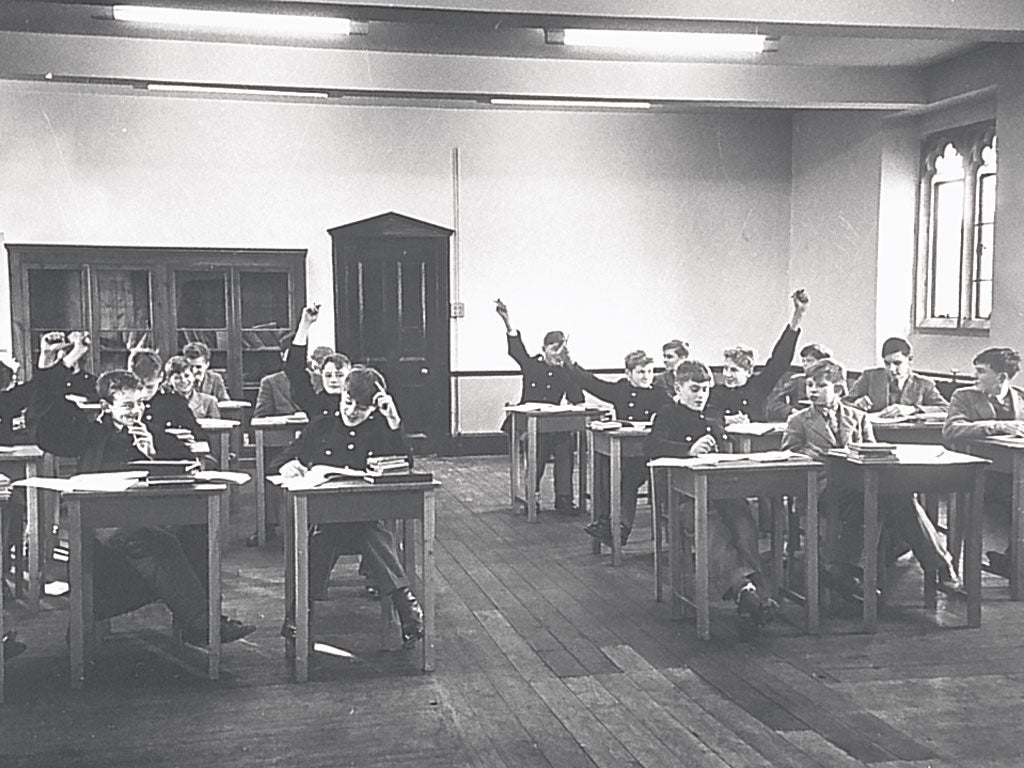The Week In Radio: The empire strikes back in a thrilling history lesson

Your support helps us to tell the story
From reproductive rights to climate change to Big Tech, The Independent is on the ground when the story is developing. Whether it's investigating the financials of Elon Musk's pro-Trump PAC or producing our latest documentary, 'The A Word', which shines a light on the American women fighting for reproductive rights, we know how important it is to parse out the facts from the messaging.
At such a critical moment in US history, we need reporters on the ground. Your donation allows us to keep sending journalists to speak to both sides of the story.
The Independent is trusted by Americans across the entire political spectrum. And unlike many other quality news outlets, we choose not to lock Americans out of our reporting and analysis with paywalls. We believe quality journalism should be available to everyone, paid for by those who can afford it.
Your support makes all the difference.The fact that we are 10 years into another Afghan war and counting suggests this government can't be too interested in heeding the lessons of history, but we as a nation are still beguiled by it. Historical drama is hot, and an engaging item on Today concerning which era was best to be born in, came down to a choice between the 1690s or Ancient Egypt. So whether you regard learning history as key to your national identity, or whether studying it is, as former education secretary Charles Clarke said, merely "ornamental", is plainly important.
That was the thesis of The Red Bits Are British, David Cannadine's look at history teaching over the past century. And his conclusion is that the way history is taught has always been contentious. It had the benefit of some brilliant oral histories. One man, taught in the 1950s, said, "We spent ages talking about the Corn Laws. It wasn't even interesting history. You can only get so much satisfaction out of the Corn Laws." There was an extract from a 1960s BBC schools programme in which a district officer helping out local chiefs in "British Africa" sighed, "I sometimes wonder if these chaps will ever manage to govern themselves. Still we must keep on trying." Now why does that sound familiar?
Interestingly, Cannadine found no "systematic indoctrination" in school history and concluded, "the besetting difficulty... is the constant polarisation. You either get the cheerleading story or something very critical." Simon Schama agreed with him but added, "We're a choir of two. We're never going to make it on to the Today programme because we're right!"
The trouble with history is, it can't be Tudors and Nazis all the time. Sometimes you have to knuckle down to the Corn Laws, or indeed the European conflict of the Thirty Years' War. According to Mihsa Glenny, if you want to understand the Nazis anyway, you need to understand the impact of that event, which was "more cataclysmic than the Great War or the Black Death". His fascinating first instalment of The Invention of Germany explained how Germany came into existence from a "mad jigsaw of hundreds of small states". One of these was the independent Abbey of Prüm, "whose only asset was one of the sandals of Jesus, which was of limited value in a military conflict".
Glenny has the dry eye for memorable detail of the best history teachers. It was the first time on radio I've heard a proper account of the siege of Magdeburg, which "distilled the violence and senselessness of the Thirty Years' War ". From those beginnings, everything that followed in Germany made sense. According to the historian Peter Wilson, the memory of that bloody disunity became "a potent force used by those wishing to unify the country."
It's journalism, however, which is the first draft of history. Cue Rory Bremner's new show, Tonight, aiming to satirise a week's worth of politics. I'm ambivalent about this. On the one hand, the line between politics and satire is more blurred than ever, so politics has hardly happened before it's a sketch and it's impossible to sound either daring or cutting edge. On the other hand, it's about time Radio 4 had something other than the kneejerk sniping of The News Quiz. Bremner settled for being amusing. Or as he put it, "printing more jokes and then quantitatively easing them into the show. We're not doing this to be popular, we're doing it for ordinary men and women who exist on one decent chuckle in the week." Note to the Conservative leadership. I'm not sure how this will focus group, but Rory only needed to use the words "Boris Johnson" to get the single biggest laugh of the night.
jane@janethynne.com
Join our commenting forum
Join thought-provoking conversations, follow other Independent readers and see their replies
Comments